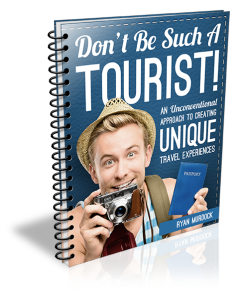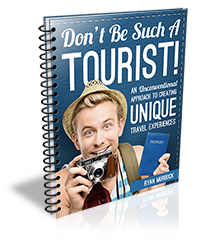Why is it so difficult to stay informed? To sift the essential from the vast cacophony of background noise? To consume just enough without smartphones and 24-hour news cycles taking over your life?
In part, the devices that improve — and often plague — our lives are deliberately designed to be addictive.
We’re hooked on that constant ‘refresh’ hit: another follower, new likes, some new non-development in the latest non-news event we’ll collectively end up forgetting a month later because, in the larger scheme of things, it didn’t matter at all.
I got thinking about my own strategy recently when my friend Shawn dropped me a line to ask, “What news agencies do you follow? There aren’t many I like that actually use real journalism, or have integrity.”
I follow six different news outlets in Malta each day to write my weekly column in The Shift. It takes a lot of time, but I can’t think of any other way to stay well enough informed to offer a considered opinion on the most recent developments.
This probably doesn’t apply to you, so we can set it aside.
Apart from work-related reading, I skim the headlines once a day on BBC World. I want to know about anything big — new disease outbreaks, new wars, new terrorist attacks — but I’ll only read further if it’s of direct interest to me.
I also skim the headlines once daily on CBC and The National Post to stay vaguely up to date with what’s happening back in Canada.
I do the same with the English edition of Der Spiegel, The Local (Berlin), and the police report in Berliner Morgenpost to keep an eye on anything I should know about here.
I’m probably spending an hour a day on this; more if I give in to the temptation of checking two or three times in a day.
It’s a lot more time than I want to devote to the brief flicker of passing events.
I’ll cut the six Malta news outlets when I stop writing about that country, and cut the German papers when we eventually stop living in Berlin.
My ideal strategy would be to follow one weekly news digest and skim the headlines of one national paper from the country I’m currently living in. That would be it.
I subscribed to The Economist until we left Canada, and read that cover to cover, but I just don’t have the time for it now.
I found reading a weekly publication like The Economist was an efficient way to stay up to speed on the most important issues each week without getting sucked into the daily news cycle, which, more often than not, was just a fresh paragraph on top of full-page rehash.
By the time a weekly magazine goes to press, the repetition — and the unimportant issues — will have been weeded out.
Rolf Dobelli, author of The Art of Thinking Clearly, recommends cutting this down even more.
“If you want to keep the illusion of ‘not missing anything important’,” he writes, “I suggest you glance through the summary page of The Economist once a week. Don’t spend more than five minutes on it.”
Won’t that leave you terribly under-informed?
Dobelli says, “If some bit of information is truly important to your profession, your company, your family or your community, you will hear it in time — from your friends, your mother-in-law or whomever you talk to or see.”
Give it a try for a week. I can confirm that life slows down to a peaceful, focused pre-internet pace if you can manage it.
But spending too much time following the global blizzard of daily events isn’t the only issue here.
The problem with ‘news’ is there’s little to no context. It presents life in real-time flashes — filtered, of course, through each writer’s or newspaper’s biases. But it doesn’t give you a sense of what those flashes mean.
Dobelli again:
“Read magazines and books which explain the world — Science, Nature, The New Yorker, The Atlantic Monthly. Go for magazines that connect the dots and don’t shy away from presenting the complexities of life — or from purely entertaining you.”
I subscribe to the print edition of The London Review of Books. The calibre of the writing is inspiring and sometimes intimidating for a person like me trying to improve my craft.
But the LRB also exposes me to ideas I wouldn’t otherwise encounter given my usual choice of books. Each issue is filled with densely-packed prose, and well worth the foreign subscription price.
I also subscribe to Geographical magazine. I wish they’d devote more space to geography and exploration and less to environmental issues. But skimming it keeps me informed about what’s happening with the Royal Geographical Society, and I like the book review section when they feature new travel literature.
I used to subscribe to ExBerliner magazine, a print digest of events, films, exhibits and restaurants in the city, written in English for foreign residents. But I finally stopped renewing it after 6 years because the writing became increasingly ideological. Even the film reviews got so overloaded with the latest social justice cancel culture buzzwords that they had me throwing it on the floor in disgust.
In an ideal world, I’d keep The Economist and the LRB, skim BBC World once a day, and skim headlines in a Canadian paper.
That’s it.
The others are largely a time suck that take me away from reading, writing and travel.
But won’t I risk missing out on something important?
Not as long as I stick with my other key strategy: having a circle of trusted friends who alert me to anything significant in their areas of interest.
I rely on my old martial arts teacher and collaborator Rick to draw my attention to all things ‘big idea’, and the latest relevant developments in tech.
John B and Vik are my source for all things Star Wars.
And my friend Heath sends recommendations for books, music and films that probably wouldn’t show up on my radar.
I know my chosen circle of Eyes will weed out the nonsense and send me anything they think I should read or listen to. I always follow up on anything they send me, and we discuss it at length by email.
A few other ‘curating tips’ from Rick:
“Pick people you respect and already know are reliable, and see who they recommend. Tyler Cowen is an excellent curator; we pick up a lot from him. There’s not a one-size fits all solution. I’ve arrived at my list organically over time. I would also add a warning about confirmation bias and the value of following people you really don’t agree with. It helps keep you honest.”
Outsourcing information-filtering to people obsessed with different subject areas means I can spend more time developing my own area of expertise and interest. Books, travel literature, writing, and history are already bottomless wells.
And I guess that’s my final piece of advice when it comes to staying sane in an info-flooded world.
Take a close look at your own day-to-day quality of life, and stop wasting time and energy worrying about everyone else’s.
I’ll give the last word to Rolf Dobelli. I think he sums it up well:
“The world is complicated, and we can do nothing about it. So, you must read longish and deep articles and books that represent its complexity. Try reading a book a week. Better two or three. History is good. Biology. Psychology. That way you’ll learn to understand the underlying mechanisms of the world. Go deep instead of broad. Enjoy material that truly interests you. Have fun reading.”

Get your FREE Guide to Creating Unique Travel Experiences today! And get out there and live your dreams...


Here in the U S news has become so spin doctored to the point of outright dishonesty.
I seek as little news as possible as I’ve found that social media will force it on you regardless.
I find the other issue with social media is that it pushes you into a corner dictated by the people you follow, and by algorithms that show you more and more of what you ‘like’. It presents an ideologically skewed view of the world by walling us off from people who have different or diametrically opposed opinions. That tendency seems to be morphing into a sort of Info Cold War, where each ‘side’ sees the other as some sort of enemy. Both have skewed views of the world.